“Before menopause, women have a lower risk of heart
disease than men. However, as women age
and their oestrogen levels fall, their risk of…”.1
Umbrella
What may the Menopause and Cardiovascular Disease Umbrella include?
Depending on the Source (DotS) this Umbrella may include:
- Cardiovascular Conditions
- Cardiovascular Disease/s (CVD/CVDs)
- Cardiovascular Disorders
- Diseases/Disorders of the Heart and Blood Vessels
- Diseases/Disorders of the Heart and Circulatory System
- Heart Disease/s
- Heart and Circulatory Disease
- Stroke
Cardiovascular Diseases
What are cardiovascular diseases (CVDs)?
DotS the definition of CVDs may vary. In Cardiovascular Diseases (CVDs): What Are Cardiovascular Diseases? the World Health Organization’s (WHO) definition is:
- Coronary heart disease – a disease of the blood vessels supplying the heart muscle
- Cerebrovascular disease – a disease of the blood vessels supplying the brain
- Peripheral arterial disease – a disease of blood vessels supplying the arms and legs
- Rheumatic heart disease – damage to the heart muscle and heart valves from rheumatic fever, caused by streptococcal bacteria
- Congenital heart disease – birth defects that affect the normal development and functioning of the heart caused by malformations of the heart structure from birth; and
- Deep vein thrombosis and pulmonary embolism – blood clots in the leg veins, which can dislodge and move to the heart and lungs”.2

 Menopause
Menopause
Is there an association between menopause and CVD risk?
The (Australian) Jean Hailes for Women’s Health (JH) note:
“Before menopause, women have a lower risk of heart disease than men. However, as women age and their oestrogen levels fall, their risk of cardiovascular disease increases”.3
Menopause and Cardiovascular Risk Factors
What are menopause and CVD risk factors?
In What Is Menopause? Perimenopause, Menopause and Postmenopause – Postmenopause: Heart Health the JH note:
- High blood pressure
- An increase in total cholesterol
- An increase in LDL (‘bad’ cholesterol)
- A decrease in HDL (‘good’ cholesterol)
- An increase in blood fats, such as triglycerides”.4
In Menopause and Cardiovascular Risk Factors: Does Menopause Increase A Woman’s Risk of Heart Disease and Stroke? the American Heart Association’s Go Red for Women elaborate on:
- Age at the time of menopause. Women who reach menopause before age 45 have a significantly higher risk of coronary heart disease…
- The cause and timing of menopause. Menopause caused by surgical removal of both ovaries at an early age can lead to a higher risk of cardiovascular disease…
- Estrogen. Levels of estrogen, which helps keep blood vessels relaxed and open, start to decline markedly as menopause approaches…
- Hot flashes and night sweats. Hot flashes and night sweats are the most common menopause-related symptoms and can last up to 10 years….
- Depression and sleep problems. In some studies, depression and sleep disturbances were linked to an increased risk of heart disease.
- Increased visceral fat. This type of fat, in the abdominal cavity near vital organs, is associated with a higher risk of cardiovascular disease and cancer.
- Cholesterol levels and metabolic syndrome risk. These cardiovascular risk factors appear to increase with menopause beyond the effects of normal aging…”.5
Prevention
Is CVD preventable?
In What Is Menopause? Perimenopause, Menopause and Postmenopause – Postmenopause: Heart Health the JH note:
For example:
- Eat a healthy and nutritious diet
- Do regular exercise
- Maintain a healthy weight
- Don’t smoke
- Limit alcohol intake”.6
Know Your Numbers
What numbers do women (and men) need to know?
In Know Your Numbers They Could Just Save Your Life the (United States) Go Red for Women elaborate on:
 “Talk to your healthcare provider today to learn about your Blood Pressure, Cholesterol, Blood Sugar and BMI (Body Mass Index)”.8
“Talk to your healthcare provider today to learn about your Blood Pressure, Cholesterol, Blood Sugar and BMI (Body Mass Index)”.8Heart Check
What may a heart check include?
In What Is Menopause? Perimenopause, Menopause and Postmenopause – Postmenopause: Heart Health the JH also note:
WISEWOMAN Program
What is the (United States) WISEWOMAN program?
Your Country may have a program similar to the WISEWOMAN Program. In WISEWOMAN Frequently Asked Questions (FAQs): What Is the WISEWOMAN Program? the (United States) Centers for Disease Control and Prevention (CDC) elaborate on:
Health Care Provider
What if I think I have CVD or I have a family history of CVD?
If you think you have CVD or you have a family history of CVD, it may be in your best interest to choose to talk to your health care provider about this
In Menopause and Cardiovascular Disease Risk Go Red for Women note:
Health Topics A-Z
Where may I find Health Topics A-Z related to Menopause and Cardiovascular Disease?
In Health Topics A-Z you may find:
Links
Where may I find Links related to Menopause and Cardiovascular Disease?
Your Country may have Links similar to:
Links
This Links List to third party websites is neither comprehensive nor exhaustive. Inclusion on this Links List does not imply endorsement or recommendation. Non-inclusion on this Links List does not imply non-endorsement or non-recommendation. Third party websites are not under the control of Meno Martha International Menopause Directory. Third party websites may contain explicit medical images and/or sexual references. Please read Meno Martha International Menopause Directory’s Links Policy before proceeding to a Link. Please contact Webmaster if you experience a problem with a Link.New or Updated
- Mayo Clinic Minute: Menopause and the Heart Connection [09 June 2024] [+ Video Courtesy: Mayo Clinic News Network]
- Menopause and Cardiovascular Disease and Using HRT To Treat Menopause Symptoms [07 March 2025]
- Videos & Podcasts: Videos – Menopause and Hormone Therapy: Current Perspectives and Controversies [18 October 2024]
- Webinars: Previous – Recommendations on Cardiovascular Risk Assessment [19 November 2024]
- Women & CVD
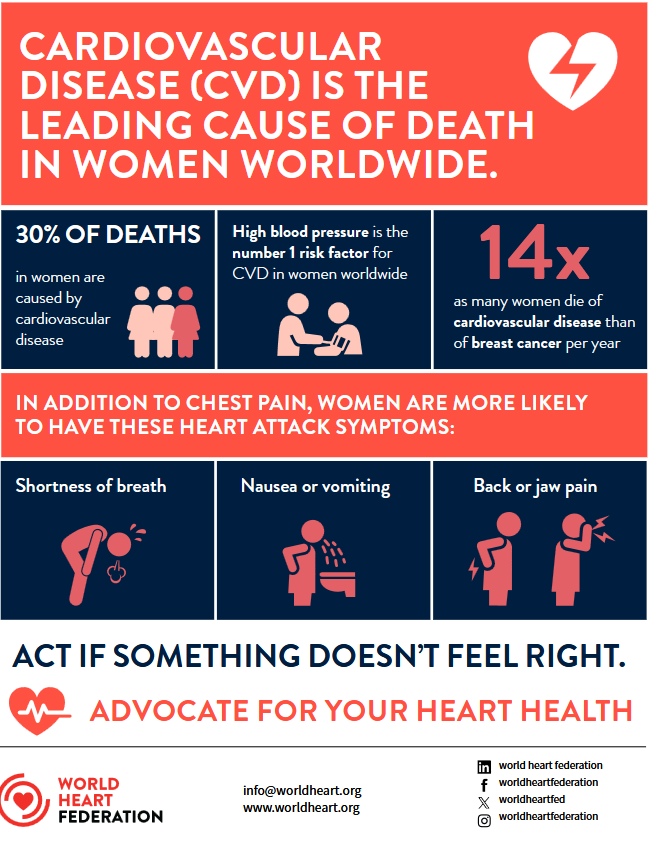
- Askearlymenopause.org [Ask EM] [+ Video: What Is Early Menopause?]
- BMS TV: Coronary Heart Disease (CHD)
- Be A Force for Change. Know the Signs. Get Your Heart Checked. [Video]
- CVS Health Screenings [+ Video]
- CAMS Menopause Hour: The Menopause Journey: Navigating Cardiometabolic Risk In Women [Council of Affiliated Menopause Societies]
- Cardiovascular Disease Risk Factors and Heart Attack Warning Signs In Women
- Cardiovascular Diseases (CVDs)
- Consumer Video and Podcast Series: 2023 Consumer Videos and Podcasts – Menopause and Heart Disease
- Consumer Video and Podcast Series: 2023 Consumer Videos and Podcasts – NAMS 2023 Nonhormone Therapies Position Statement for Bothersome Menopause Symptoms
- Consumer Video and Podcast Series: 2023 Consumer Videos and Podcasts – New FDA-Approved Nonhormone Option for the Treatment of Hot Flashes
- Consumer Video and Podcast Series: 2023 Consumer Videos and Podcasts – Premature and Early Menopause
- Consumer Video and Podcast Series: 2023 Consumer Videos and Podcasts – Preparing for Your Menopause Health Care Visit
- Doing These 8 Things May Greatly Lower Risk for Heart Disease and Stroke
- Factors Impacting Women’s Cardiovascular Health Across the Lifespan
- February Is American Heart Month

- Find A Menopause Practitioner [United States and Other]
- Find An AMS Member [Australasian Menopause Society i.e. Australia and New Zealand]
- Find Your Nearest BMS Menopause Specialist [British Menopause Society]
- Getting Serious About Heart Health: Risk Factors for Cholesterol
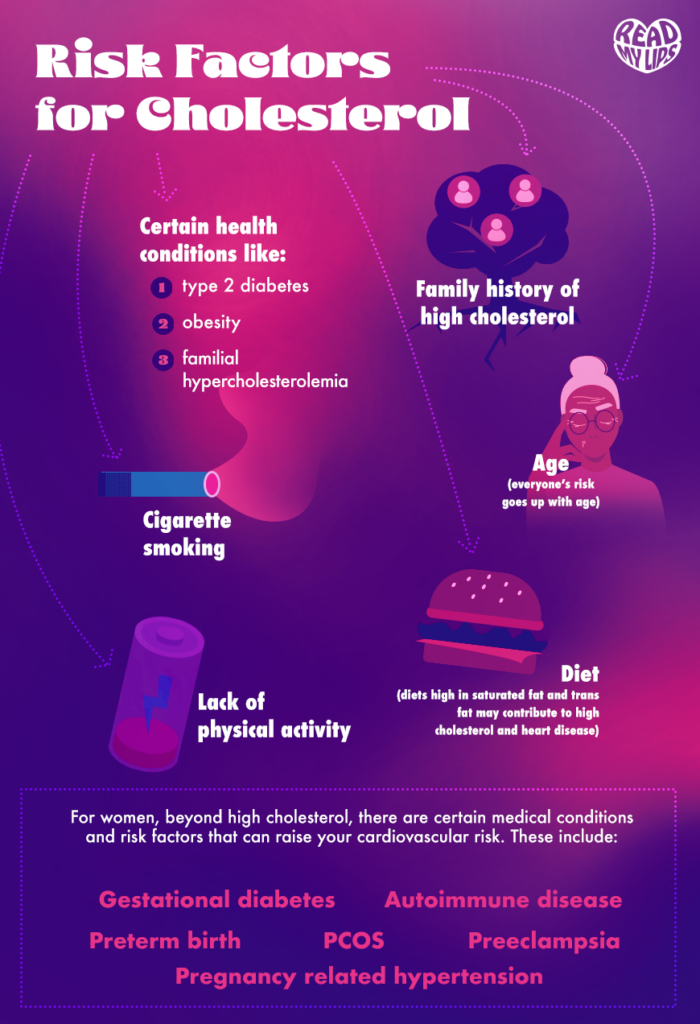
- Goredforwomen.org [Go Red for Women, United States]
- HRT Questions Answered
- Heart Disease: Preventing Heart Disease – Choose Healthy Habits
- Heart Health
- Heart Health for Women
- Heart Health for Women
- Heart Palpitations
- Herheart.org
- How Menopause Impacts Your Health
- Improving Heart Health At Midlife and Beyond Could Lower Future Risk of Stroke, Dementia
- Joint Position Statement By the British Menopause Society, Royal College of Obstetricians and Gynaecologists and Society for Endocrinology on Best Practice Recommendations for the Care of Women Experiencing the Menopause
- KnowDiabetesbyHeart
- Know Your Numbers
- Later Years (Around 50 Years and Over): Menopause and Post Menopause Health – After the Menopause [Other Languages and Formats]
- Later Years (Around 50 Years and Over): Menopause and Post Menopause Health – Early and Premature Menopause [Other Languages and Formats]
- Later Years (Around 50 Years and Over): Menopause and Post Menopause Health – Menopause [+ Video: Menopause Myths] [Other Languages and Formats]
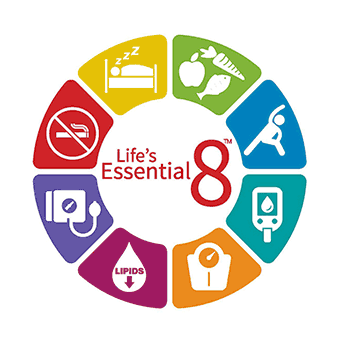 Let’s Talk About Perimenopause
Let’s Talk About Perimenopause- Life’s Essential 8
- Looking After Yourself During Menopause
- Mayo Clinic Minute: Are You Getting Enough Sleep for Your Best Heart Health? [+ Video Courtesy: Mayo Clinic News Network]
- Mayo Clinic Minute: Menopause and the Heart Connection [+ Video]
- Mayo Clinic Minute: Perimenopause and Menopause [+ Video]
- Mayo Clinic Minute: Signs of Coronary Artery Disease, How To Reduce Your Risk [+ Video]
- Mayo Clinic Minute: The Link Between Heart Disease and Stroke [+ Video Courtesy: Mayo Clinic News Network]
- Mayo Clinic Minute: What Women Need To Know About Stroke [+ Video]
- Menopausal Hormone Therapy, Heart Disease and Stroke
- Menopause
- Menopause
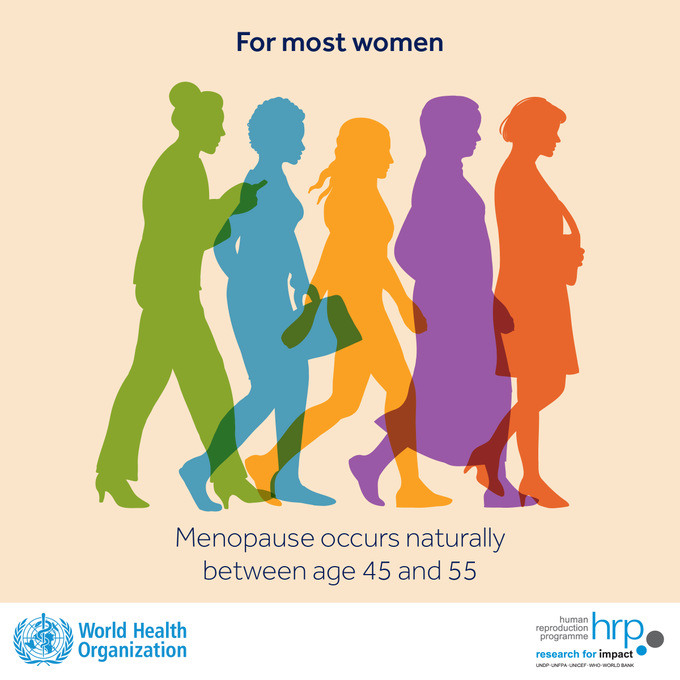
- Menopause Can Bring Increased Cholesterol Levels and Other Heart Risks. Here’s Why and What To Do About It
- Menopause Map: Downloadable Resources – My Personal Path Print Tools: Questions for Your Health Care Provider

- Menopause Map: Downloadable Resources – My Personal Path Print Tools: Symptom Tracker
- Menopause Patient Information [Videos] 2. Talking To Your GP About Menopause
- Menopause and Cardiovascular Disease and Using HRT To Treat Menopause Symptoms [ + Video]
- Menopause and Cardiovascular Risk
- Menopause: Ensuring A Tranquil Transition
- Menopause: Identification and Management [NICE Guideline Published: 12 November 2015 Last Updated: 07 November 2024]

- Menopause: Identification and Management: NICE Guideline [NG23] Published: 12 November 2015 Last Updated: 07 November 2024
- Menopause: Understanding the Changes and Finding Relief | Dr Susan Davis | The Proof Podcast EP 256
- Million Hearts
- Mymenoplan.org [My Menoplan, United States]
- National Center for Complementary and Integrative Health: Cardiovascular Disease
- Navigating Menopause: Expert Insights and Solutions | Dr Susan Davis | The Proof Podcast EP 245 [Video]
- Navigating Menopause: Honest Answers To All Your Questions [+ Video: What To Expect in Menopause]
- People Who Follow These 8 Heart Health Metrics May Live Years Longer
- Perimenopause
- Perimenopause
- Perimenopause and Menopause Checklist: Translated Checklists
- Perimenopause and Menopause Symptom Checklist

- Q&A: Health Changes During Menopause Associated With Increased Cardiovascular Risk
- Risk Factors
- Staying Healthy During and After Menopause
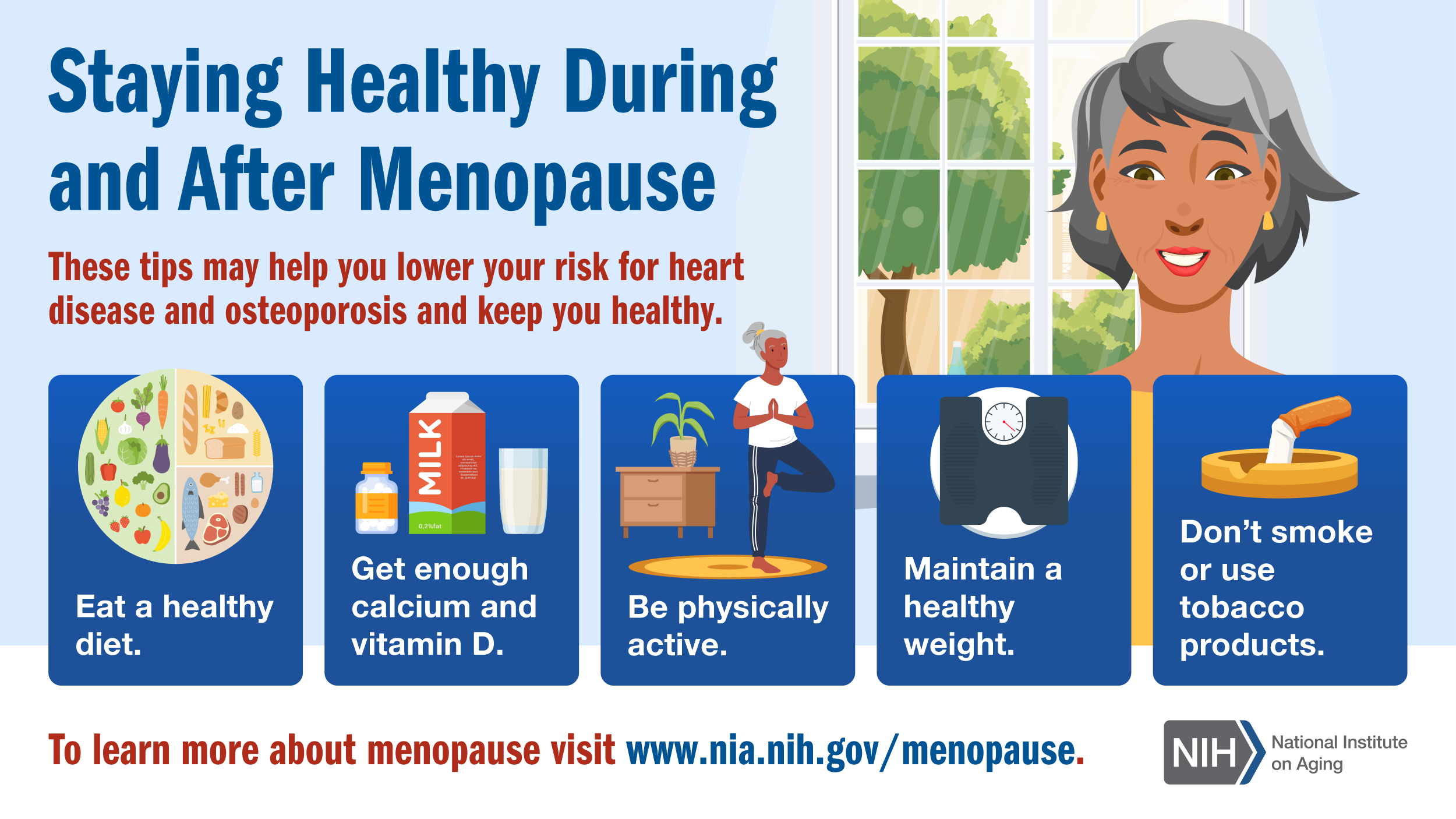
- Smokefreewomen [United States]
- Stroke
- Taking It To Heart: Addressing Cardiovascular Disease In Women [Video]
- The Connection Between Menopause and Cardiovascular Disease Risks
- The Heart Truth [National Heart, Lung, and Blood Institute, United States]
- The Menopausal Transition Period and Cardiovascular Risk
- The Menopause Society Statement on Misinformation Surrounding Hormone Therapy [September 2024]
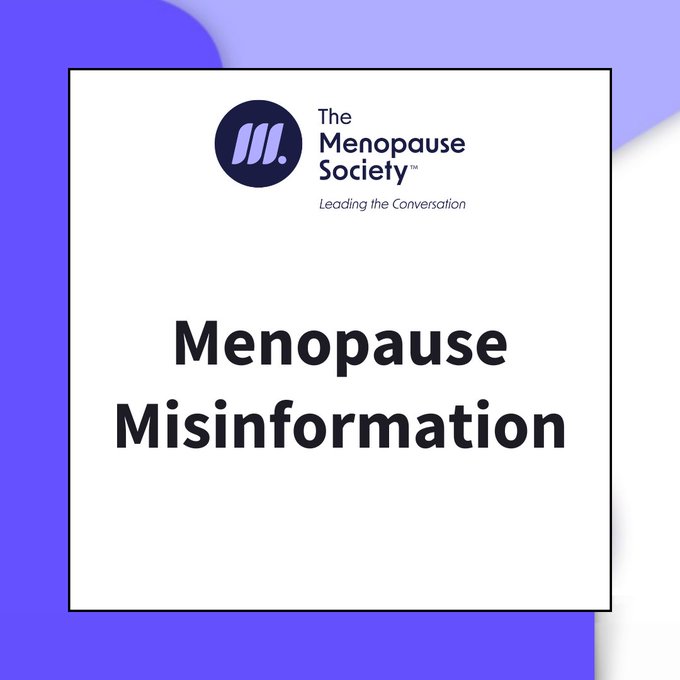
- The Slowly Evolving Truth About Heart Disease and Women
- The Truth About Menopause Supplements | Dr Sarah Berry [Video]
- Tips To Help Manage Menopause Symptoms
- Video: Leslie Cho, MD, Discusses CV Risks, Benefits of Menopausal Hormone Therapy
- Videos & Podcasts: Videos – Cardiovascular Disease In Women
- Videos & Podcasts: Videos – Menopause and Hormone Therapy: Current Perspectives and Controversies
- Videos and Podcasts: Videos – Heart Disease, Risk Factors of Developing Heart Disease, and Can I Take Hormones?
- WISEWOMAN Frequently Asked Questions (FAQs)
- Webinars: Previous – Cardiovascular Disease
- Webinars: Previous – Recommendations on Cardiovascular Risk Assessment
- Webinars: Previous – The Heart of the Matter
- What Is Cardiovascular Disease?
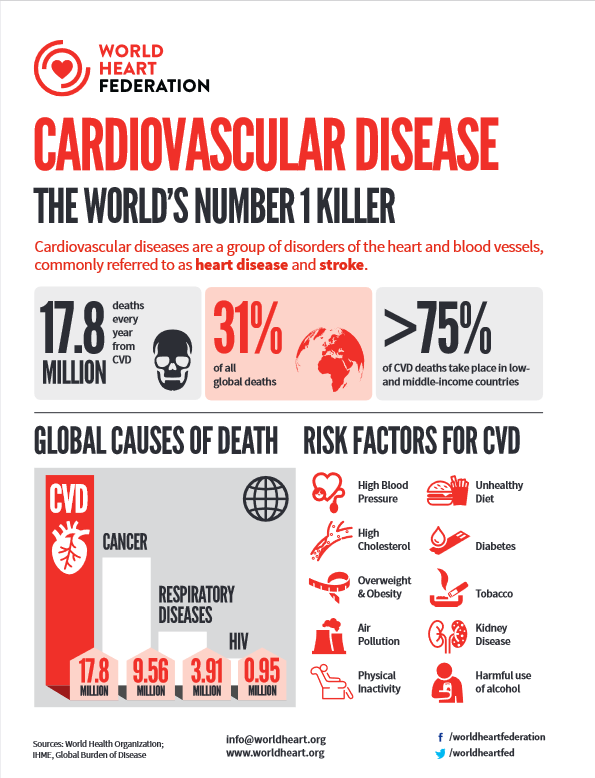
- Women & CVD
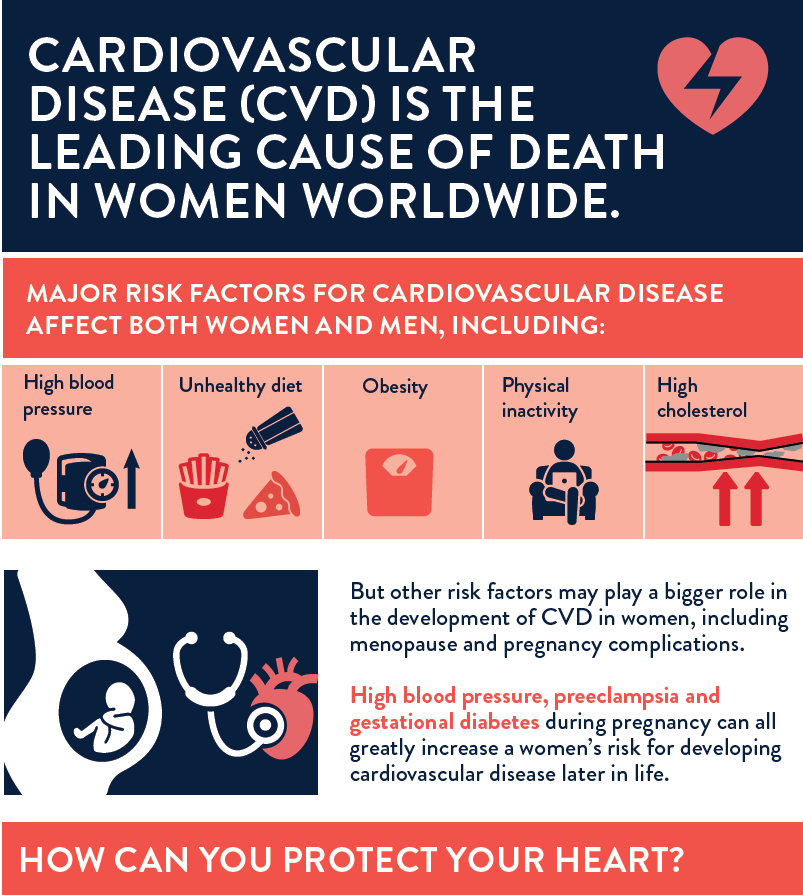
- Womenheart.org [WomenHeart, United States]
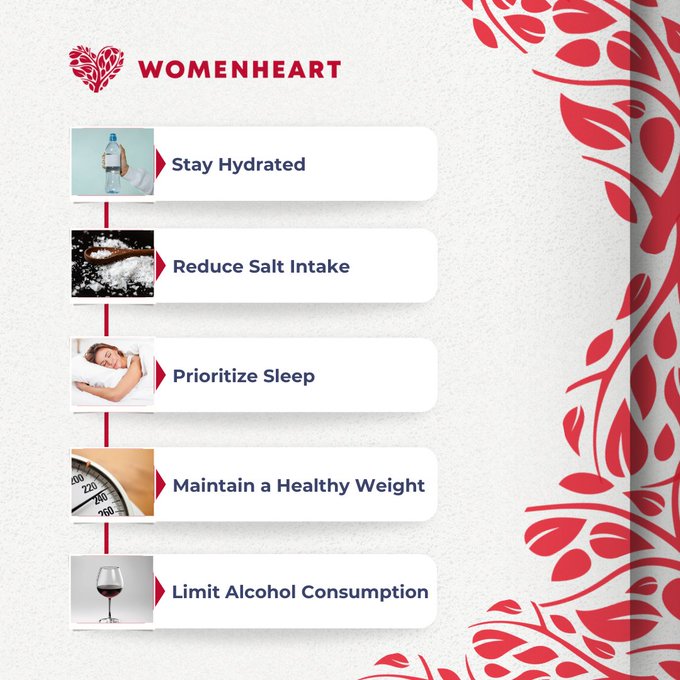
- Women’s Health Disparities: Cardiovascular Disease
- World Heart Day [29 September]
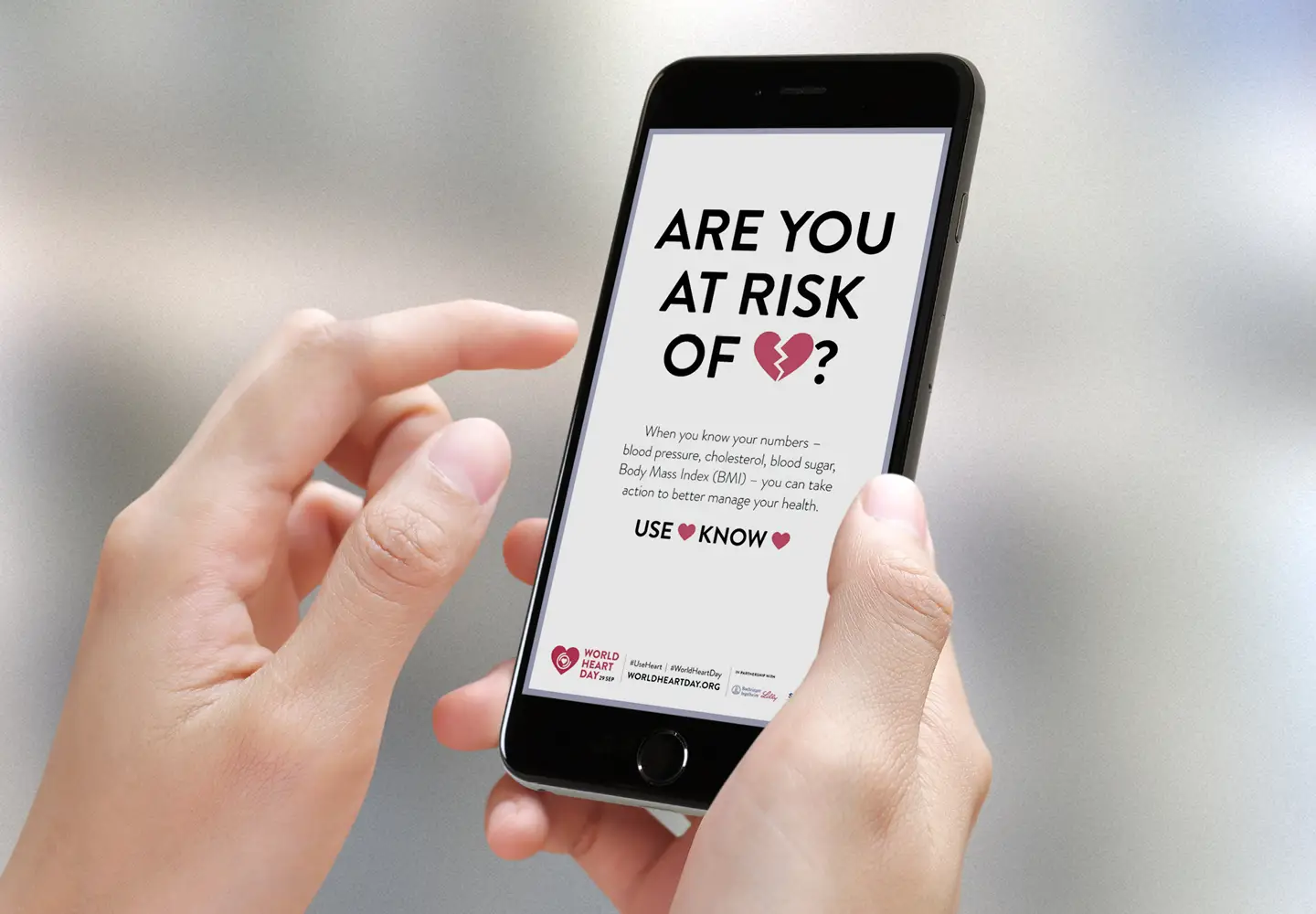

- World Menopause Day 2023

- World Menopause Day 2023: Patient Information Leaflet – Cardiovascular Disease: What Women Need To Know [Multiply Languages]
- World Menopause Day 2024: Leaflet for Women – Menopause and Menopause Hormone Therapy [Multiply Languages]
- World Menopause Day 2024: Poster for Women – The 5 Ws of Menopause Hormone Therapy (MHT)
- World Stroke Day
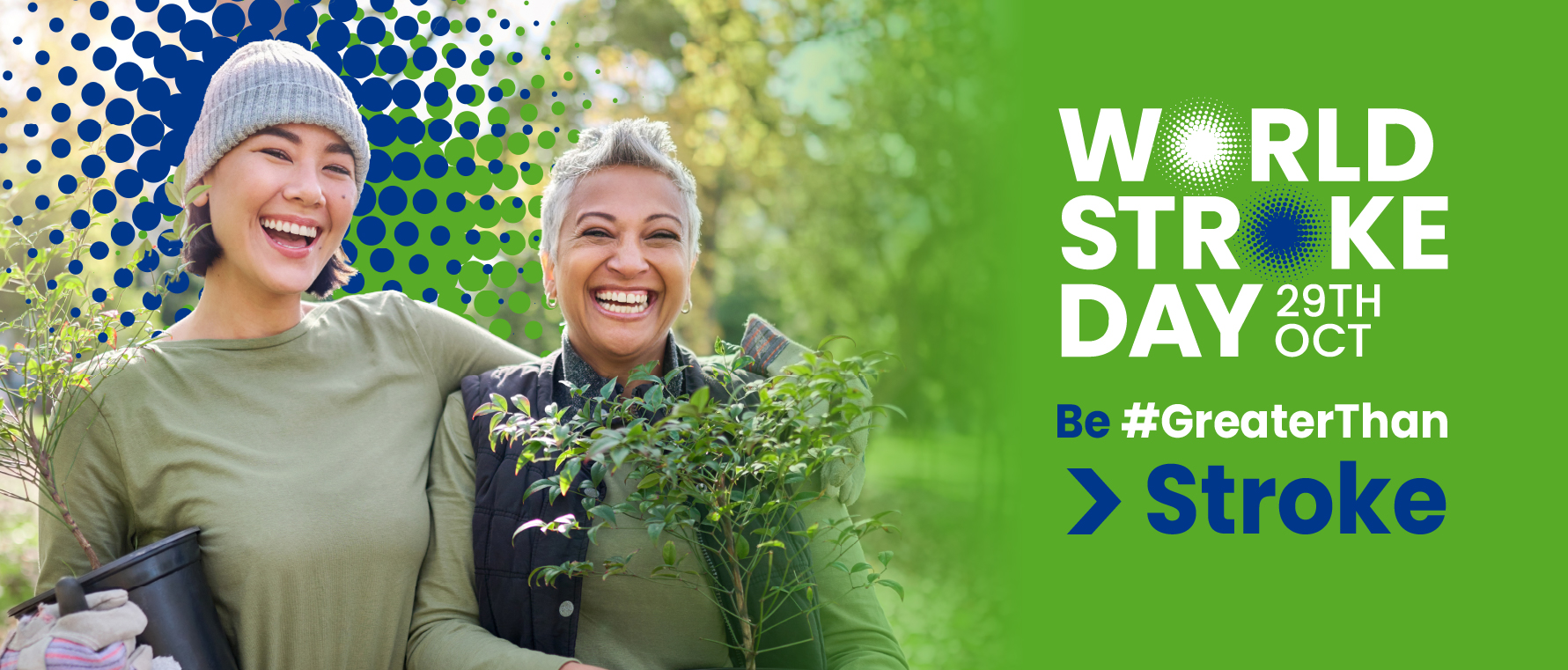
- You Can Prevent Heart Disease. Yes, YOU!
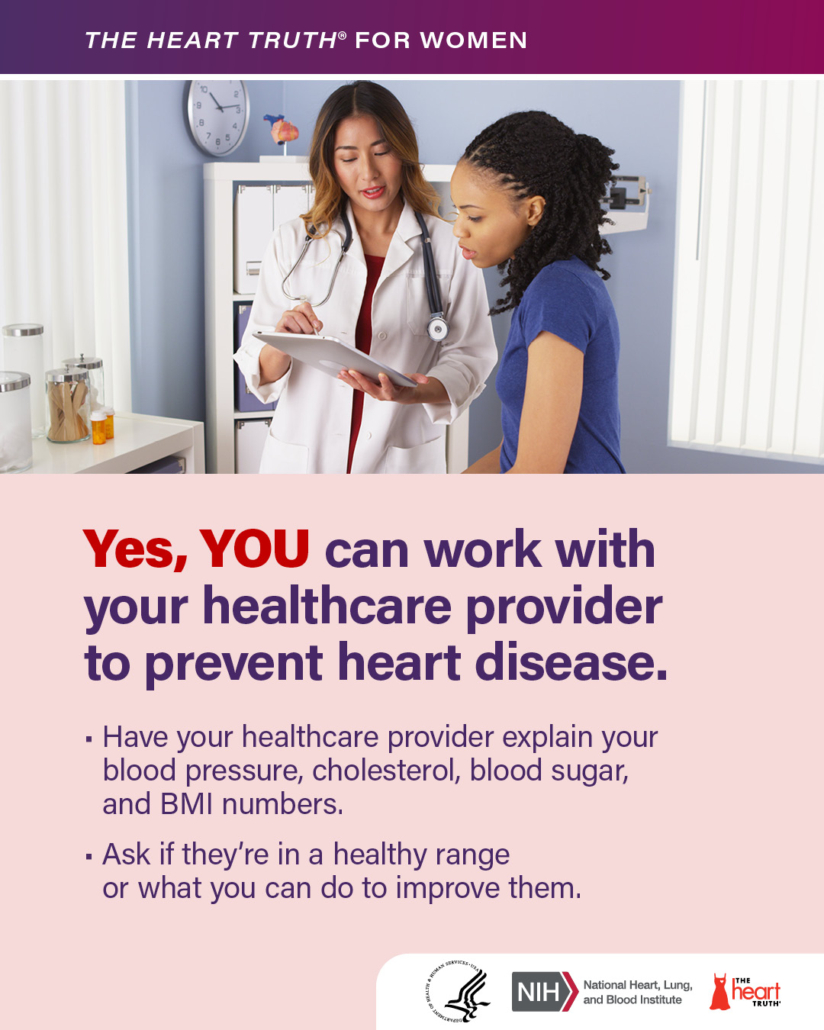
Sources
Where may I find the Sources quoted?
You may find the Sources quoted at:
Sources
- What Is Menopause? Perimenopause, Menopause and Postmenopause – Postmenopause: Heart Health. Last Updated: 12 February 2024 | Last Reviewed: 19 August 2022. Jean Hailes for Women’s Health https://www.jeanhailes.org.au/health-a-z/menopause/about-menopause Accessed: 12 February 2025
- Cardiovascular Diseases (CVDs): What Are Cardiovascular Diseases? 11 June 2021. World Health Organization https://www.who.int/en/news-room/fact-sheets/detail/cardiovascular-diseases-(cvds) Accessed: 12 February 2025
- What Is Menopause? Perimenopause, Menopause and Postmenopause – Postmenopause: Heart Health. Last Updated: 18 December 2024 | Last Reviewed: 19 August 2022. Jean Hailes for Women’s Health https://www.jeanhailes.org.au/health-a-z/menopause/about-menopause Accessed: 12 February 2025
- What Is Menopause? Perimenopause, Menopause and Postmenopause – Postmenopause: Heart Health. Last Updated: 18 December 2024 | Last Reviewed: 19 August 2022. Jean Hailes for Women’s Health https://www.jeanhailes.org.au/health-a-z/menopause/about-menopause Accessed: 12 February 2025
- Menopause and Cardiovascular Disease Risk: Does Menopause Increase A Woman’s Risk of Heart Disease and Stroke? Last Reviewed: 12 September 2024. Go Red for Women https://www.goredforwomen.org/en/know-your-risk/menopause/menopause-and-cardiovascular-risk Accessed: 12 February 2025
- What Is Menopause? Perimenopause, Menopause and Postmenopause – Postmenopause: Heart Health. Last Updated: 18 December 2024 | Last Reviewed: 19 August 2022. Jean Hailes for Women’s Health https://www.jeanhailes.org.au/health-a-z/menopause/about-menopause Accessed: 12 February 2025
- Know Your Numbers They Could Just Save Your Life. Go Red for Women https://www.goredforwomen.org/en/know-your-risk/know-your-numbers Accessed: 12 February 2025
- What Is Menopause? Perimenopause, Menopause and Postmenopause – Postmenopause: Heart Health. Last Updated: 18 December 2024 | Last Reviewed: 19 August 2022. Jean Hailes for Women’s Health https://www.jeanhailes.org.au/health-a-z/menopause/about-menopause Accessed: 12 February 2025
- WISEWOMAN Frequently Asked Questions (FAQs): What Is the WISEWOMAN Program? 15 May 2024. Centers for Disease Control and Prevention https://www.cdc.gov/wisewoman/php/faqs/?CDC_AAref_Val=https://www.cdc.gov/wisewoman/faqs.htm Accessed: 12 February 2025
- Menopause and Cardiovascular Disease Risk. Last Reviewed: 12 September 2024. Go Red for Women https://www.goredforwomen.org/en/know-your-risk/menopause/menopause-and-cardiovascular-risk Accessed: 19 January 2025







